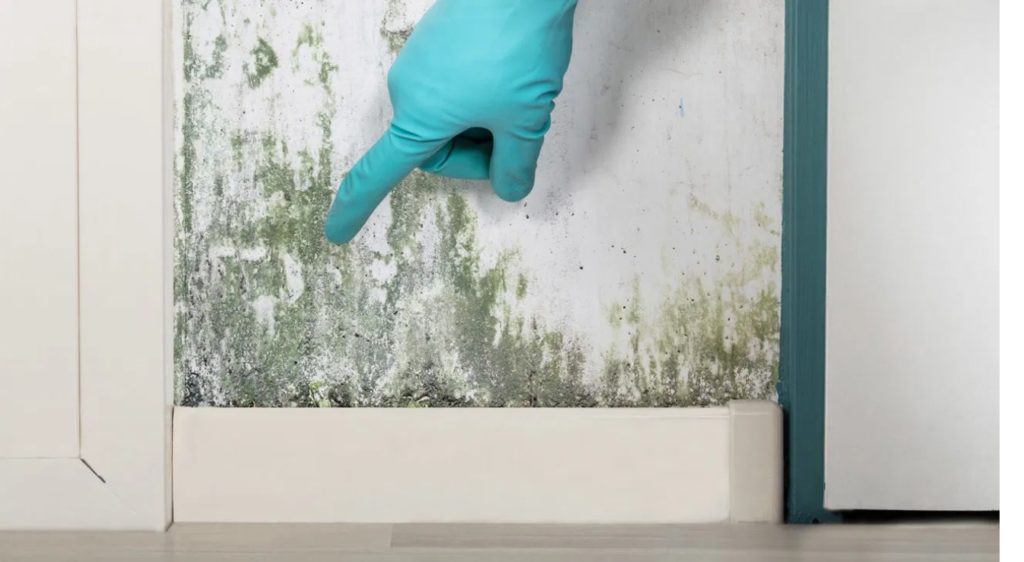
Mold Signs in Washington DC Home
Sometimes seeing mold involves just tossing an old sandwich from the bottom of the fridge. But in certain instances, certain home molds can be extremely harmful to your health and your loved ones.
A compound called mycotoxin is produced by a tiny number of mold species, causing respiratory problems, headaches, and possibly irreversible brain damage. According to the Clinical Microbiology Review, less severe but still troubling symptoms include a runny nose, sneezing, or an unpleasant odor.
According to the CDC (Centers for Disease Control) and the EPA (Environmental Protection Agency), there are a several signs your home may be harboring hazardous mold.
Your air conditioning or heating smells weird.
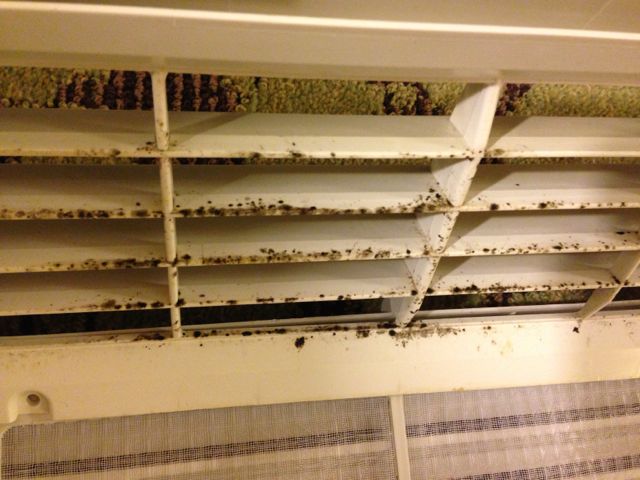
You can recognize mold by a pungent smell coming from your air conditioner or heating system.
Standalone air conditioners are perfect breeding grounds for mold. When not in use, they’re damp, gloomy, and constantly exposed to warm temperatures.
During the winter, keeping an air conditioner in a heated basement or closet increases the risk of mold growth.
Have your heating and cooling systems inspected by an HVAC technician on a regular basis to prevent mold from growing and multiplying.
Your shower tiles have dark grout between them.
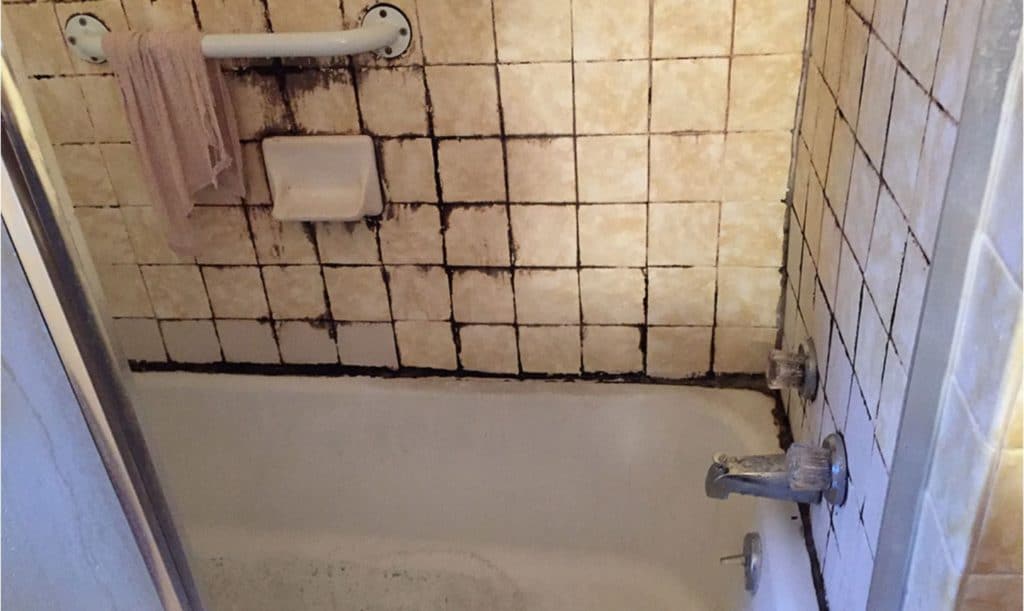
It’s most likely mold. The good news is that it’s most likely the non-toxic kind.
If you had a recent leakage in your restroom plumbing or flooding in an adjacent room, you could possibly have a highly poisonous type of fungus which should only be handled by experts.
You feel like you have a cold that just won’t go away.
Mold reactions can show themselves in a persistently runny nose and sneezing spells. That lingering cold you can’t shake off could be an indication of a hidden mold problem.
Try noticing if your symptoms get worse after spending time in a specific room, like when you finish washing laundry in the basement.
You find dark or colored spots on your walls.
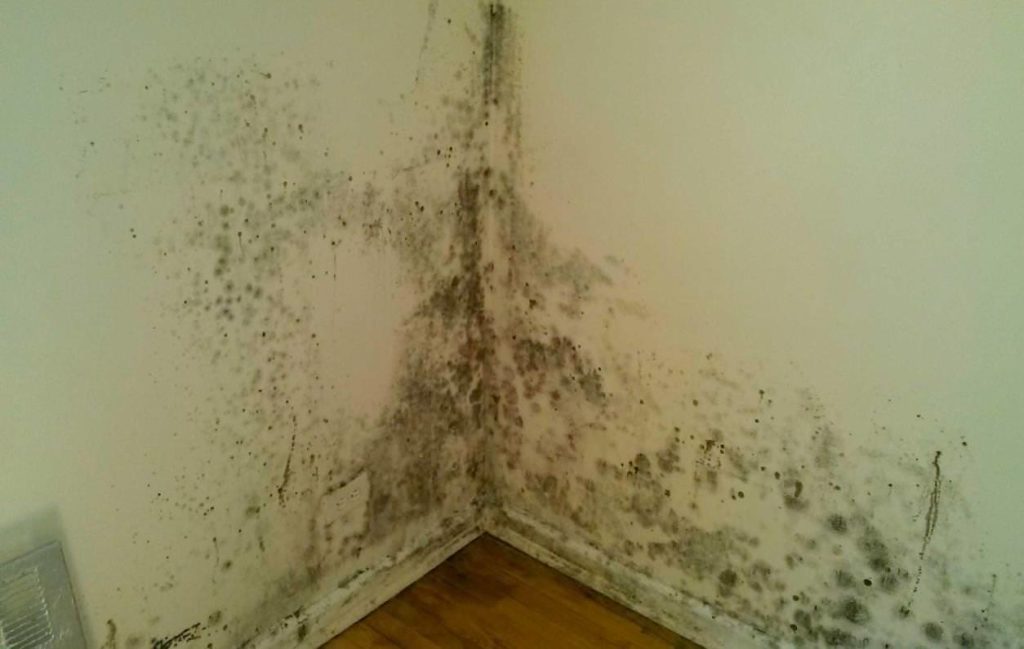
Mold can take on a variety of forms, textures, and colors. It can look like anything from green, pouring slime to a harmless-looking grey fluff.
If your walls are splitting in places, make sure there isn’t leakage in the plumbing or an unregulated humidity levels.
Your asthma mysteriously worsens.
Mold can be the root of a pre-existing respiratory condition that resurfaces after periods at home.
Most household molds are not harmful to people without respirator issues, but can flare up and worsen asthma for asthma sufferers.. If your breathing difficulties have worsened without an obvious cause, schedule both an appointment with your doctor and a mold inspection.
Your seasonal allergies never subside.
If your allergy symptoms are lingering, there could be a moldy cause for your persistent sniffles.
Mold exposure symptoms can mimic or even aggravate seasonal allergies. If your symptoms seem to ease off during the day while you’re at work before deteriorating when you get home, this could be a sign of a mold issue at home.
You feel itchy.
Although mold may grow in basements, it also is capable of penetrating your clothing -damp clothing, to be precise.
Mold growth on the fibers might irritate your skin if you frequently leave your damp towel on the floor or dry your laundry on a rack inside. To avoid this, make sure to dry damp items as quickly as possible and don’t leave wet towels in the bathroom.
Your sink or toilet flooded.
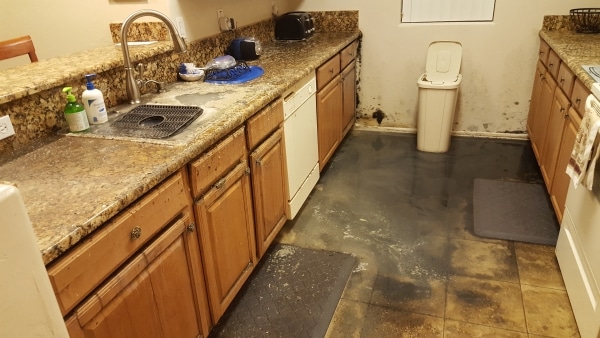
When there is flooding, mold is highly likely if not guaranteed. Seemingly small incidents like an overflowing bathtub or continuously leaking sink pipes can produce optimal conditions for mold growth.
There’s a musty odor.
If your house starts to smell mustier than usual, even after you’ve cleaned the common suspects, you might have a mold infestation on your hands.
If the stench becomes worse in one part of your house, or even one corner of a room, that’s a sign of a mold problem that you can’t fix with a quick vacuum.
If you’ve scrubbed the carpet, steamed the drapes, and taken out the trash and the odor persists, it could be a mold infestation.
What You can Do to Remove Mold
The best thing you can do if you think your home is infested with mold is to seek the assistance of a professional mold remediation specialist. At MoldGone, our experts examine your home and any samples to identify exactly what kind of mold you have and whether or not it poses a threat to you and your family.
Call us now at 240.970.6533 and schedule an appointment!



Recent Comments